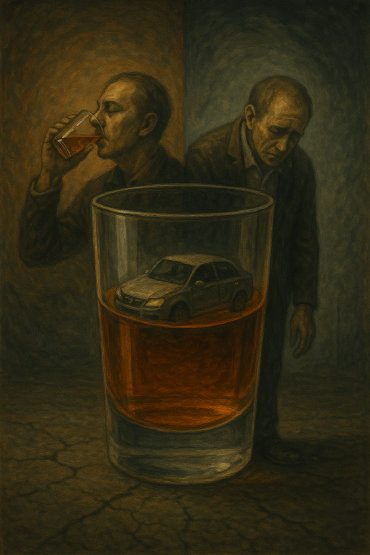Why does repeat drunk driving not stop?
Seriousness of Drunk Driving
We are all too aware of the dangers of driving under the influence. We have seen countless instances through news and statistics of what can happen when someone gets behind the wheel while intoxicated. Nevertheless, driving under the influence continues to occur repeatedly. In particular, when the same person repeats this behavior two or three times, it makes us reflect on whether our society is truly addressing this issue properly.
Case Study: Judgment of the Cheongju District Court
On May 24th, the Cheongju District Court sentenced a man in his 60s, referred to as Mr. A, to a lengthy prison term. He had a previous record of being caught driving under the influence in November 2024, but he drove again while severely intoxicated, resulting in three accidents while fleeing the scene. The incidents lasted over four hours, and the damage was significant. This was an event that could not simply be viewed as an individual's deviation, but rather highlighted the shortcomings of our society.
Why does drunk driving happen repeatedly?
Then why does this keep happening? Of course, there have been institutional responses. The blood alcohol concentration standards have been strengthened, and legal mechanisms for confiscating or destroying vehicles have been established. However, it is questionable how well these mechanisms actually work. If detection is difficult and there are loopholes that allow individuals to evade penalties, the institution loses its power in reality.
Awareness of drunk driving issues
The more fundamental issue is that we still tend to take drunk driving lightly. Thoughts like 'a drink or two is fine', 'it's a hassle to call a ride', and 'it's nighttime so it should be okay' still persist in our daily lives. If this perception does not change, no matter how strong the regulations are, it will be of no use.
Room for Hope: Changes in Systems and Technology
However, that does not mean that there is no hope. If changes in systems, technology, and perceptions occur together, there can be significant improvements. For example, we can consider more stringent restrictions on the re-acquisition of licenses for repeat offenders or prohibiting vehicle registration for habitual violators. Additionally, it is technically feasible to install alcohol detection devices in vehicles to prevent starting the engine when under the influence. Such technologies have already shown certain effectiveness in several countries abroad.
The Importance of Education and Campaigns
Along with this, education and campaigns are crucial. The message of 'absolute prohibition of drunk driving' should no longer be an abstract warning, but rather become a standard of daily behavior. It is necessary to educate everyone, from elementary school students to adults, so that they can understand the risks and responsibilities of drunk driving, and to repeatedly inform them about it.
Past Mistakes and Rehabilitation Programs
Another aspect that should not be overlooked is how to manage and support those who have made mistakes in the past. While punishment is necessary, rehabilitation programs, psychological counseling, and social support must accompany efforts to ensure they do not make dangerous choices again. Enforcement alone cannot completely solve the problem.
Essential Changes in Our Society
The issue of drunk driving is no longer just a matter of enforcement, but a matter of the attitudes and culture of our entire society. And changing that culture is not something that only the government can do. It is the responsibility of all of us.
Conversations with People Around You
How about talking to the people around you today about drinking and driving? Let's share how easily we ignore that danger and how it can change so many lives. Changing one person at a time is the real start of change.

Post a Comment